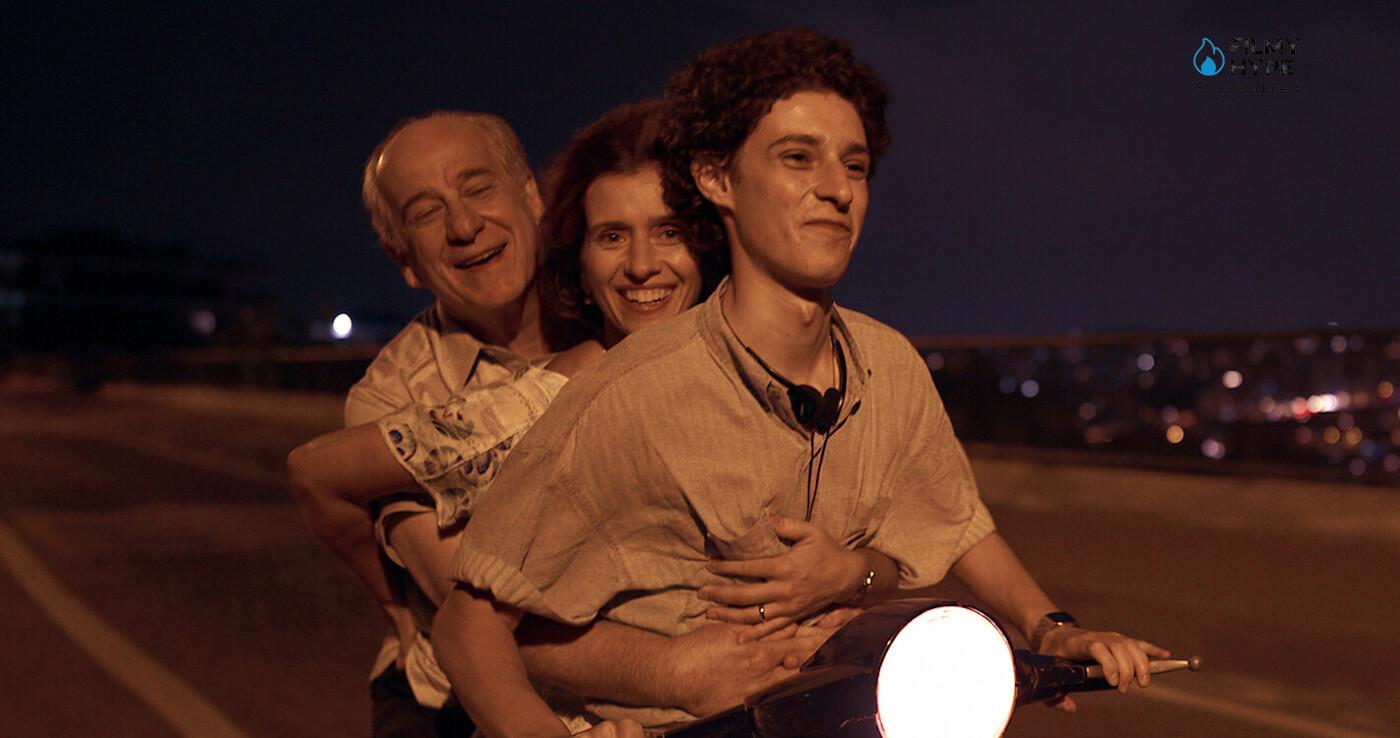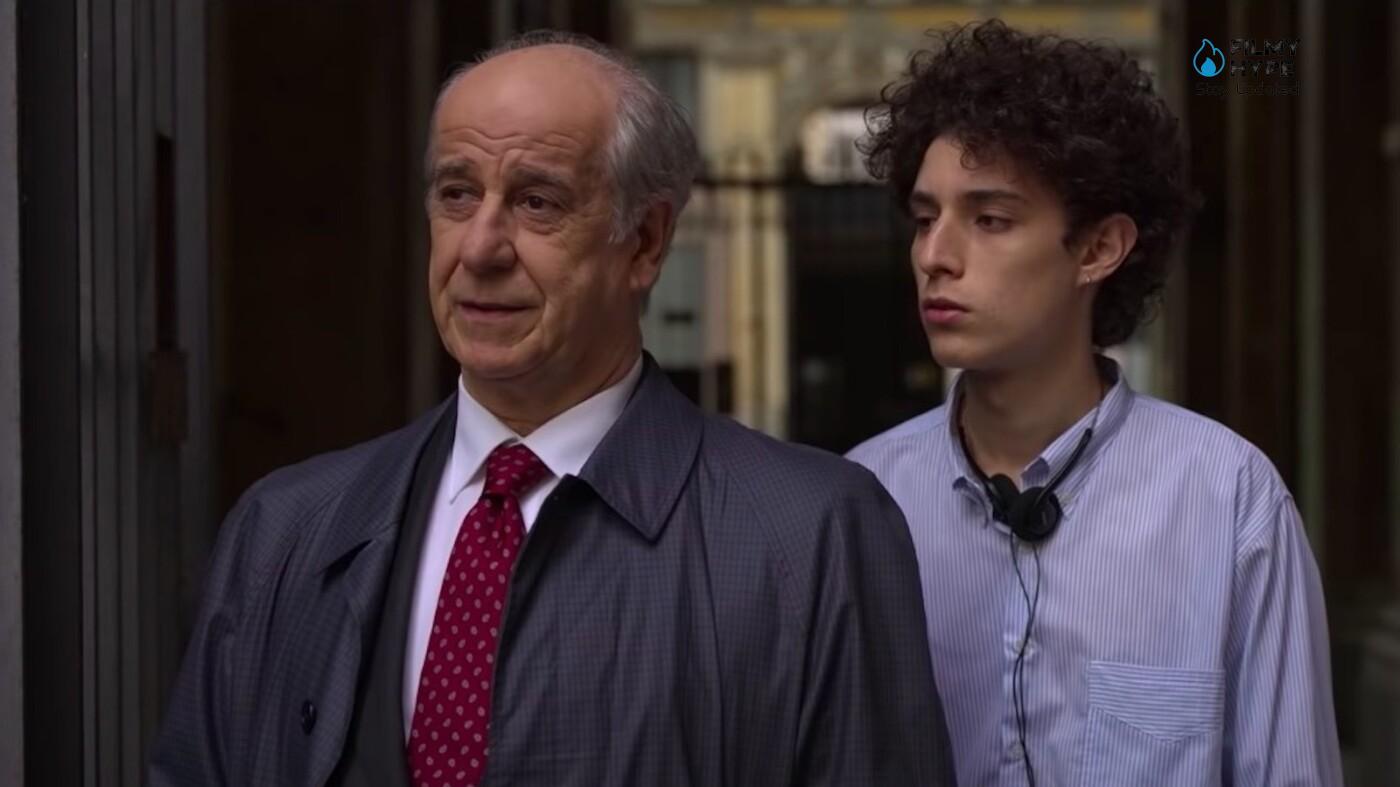The Hand of God: 5 Reasons Why Paolo Sorrentino’s Film Should Win An Oscar
For many The Hand of God is the most beautiful film created by Paolo Sorrentino during his career and it deserves an Oscar even more than The Great Beauty, which we remember triumphed at the 2014 Academy Awards in the Best Foreign Film category. The latest feature film by the Neapolitan director was released on the Netflix streaming platform last December 15, but it was already in September – when the film was presented in competition at the Venice International Film Festival – that critic from all over the world were shouting at ‘ Oscar. In mid-December the news then came that The Hand of God had been chosen among the fifteen titles in shortlist for the nomination in the Best International Film category.

The Hand of God: 5 Reasons Why Paolo Sorrentino’s Film Should Win An Oscar
Now, with the announcement of the Academy’s nominations ever closer, the public is eagerly awaiting and above all in excitement, ready to cheer on the Italian director, who hopes to have his second Oscar in his hands and decree himself as one of the best international directors of our century. But why The Hand of God so special, but above all why should he be nominated and maybe the Oscar on the special evening of March 27, 2022? Anyone who has seen the film is aware of the reasons why Paolo Sorrentino should fly to Los Angeles and deliver his second victory speech on the stage of the Dolby Theater. But for everyone else, here are five fundamental points that demonstrate the value of the film starring the young Filippo Scotti.
1. The Myth Of Maradona
In the film, the love story between Diego Armando Maradona and Napoli is not just a frame but has a great influence in the life of the young protagonist Fabietto, who was literally saved by the God of football. Maradona himself and his hand give the title to the film itself. La mano de Dios is the goal scored by Maradona in the quarterfinals of the 1986 World Cup against England, thanks to which the Argentine national team won, thus becoming world champion.
Within the film, The Hand of God is not only the one that brought Argentina to the fore, but also the one that saved Fabietto from certain death. About halfway through the film, Fabietto is invited by his parents to stay with them for a weekend in their home in the mountains. However, the boy refuses to go and see the Napoli match and see his favorite footballer, Maradona, play. That same weekend his parents died asphyxiated by the smoke from the chimney. It was precisely “The Hand of God” that saved him and not that Almighty God, but that of football Maradona. In this incredible true story, the passion for football and for the Argentine player led Fabietto away from his parents and above all from his certain death.
2. The Special Relationship Of Fabietto And His Brother Marchino
The Schisa family is made up of five people: there are the father Saverio, the mother Maria, Daniela, Marchino and Fabietto. Despite being three brothers, on the screen we see the relationship between Marchino and Fabietto evolve, to the detriment of the one with Daniela, who instead is always locked in the bathroom and talks to her family through the door, even when the situation becomes more delicate. That of Marchino and Fabietto, on the other hand, is the evolution of a relationship between brothers, which from simple and almost forced becomes gradually more and more lasting and consolidated, also thanks – or to blame – for the tragic loss that sees the three boys become orphans. too soon. Passionate about cinema, it is Marchino himself who installs the passion for the Seventh Art in Fabietto, being accompanied to various film auditions, including that of director Federico Fellini. Unconsciously Marchino pushed Fabietto away from Naples, in search of his own path to take towards cinematic success.

3. Paolo Sorrentino Gets Naked
We know the Academy has a particular penchant for films based on true stories. The Hand of God, however, it is not only the product based on a true story, but it is the staging of the director’s story. Paolo Sorrentino has laid bare himself and without any filter has brought his life to the screen, his tragic story not to pity himself, but to show how much his life has been an inspiration also and above all to his career. He has eliminated what was the grotesque style of The Great Beauty, to give life to something more intimate, with a sincere narration, whose pain is capable of uniting the director, actors, characters and audience in a single embrace. The director’s intimacy thus becomes a universal narrative, a cinema that shares parallel stories, joys seen through the eyes of a little boy and pains experienced in full by the public who are fascinated by the deep secret revealed through what the director knows best: the cinema.
4. Naples As Beautiful As It Had Never Been Before
In The hand of God there is Naples, a Naples as it had never been represented before. A Naples different from that of Troisi, different from that of Pino Daniele (although the singer is present with his music) and as strong as the presence of Maradona is, the Naples of the football player is not the same as that of Fabietto. The Naples of the protagonist and Sorrentino is that of contradictions that has always fascinated not only the inhabitants, but especially those who know little about it. It is the Naples that takes your breath away at dawn, the one with the warm tones of the Eighties, the one that never goes to sleep, that of beautiful women and dark alleys at night. This is a Naples to be experienced, which gave birth to Paolo Sorrentino and which was close to him despite the pains and despite the fact that he went away to find his way. The Naples of The Hand of God has arrived in Los Angeles and with its coasts, with its caves has also fascinated the Academy.
5. The Incredible Value Of The Cast
The Hand of God would not have had this great success if it had not been chosen a cast capable of bringing on stage characters who really existed and who have been dear to the director since he was born. Special mention goes to the young Filippo Scotti who played Fabietto/Paolo Sorrentino, and who thanks to his first stellar interpretation also won the Marcello Mastroianni Prize at the Venice Film Festival as best emerging actor. Filippo managed to show the evolution of Fabietto throughout the entire film, forced to become his despite Fabio. The young actor was accompanied in his first adventure by colleagues of a certain caliber, such as Toni Servillo, who already collaborated with Paolo Sorrentino in The Great Beauty.
Here he plays the wise father of Fabietto, a man with a ready word and who, like all fathers, is first a man who makes mistakes. Beside her is Teresa Saponangelo, who plays the ironic mother Maria, always ready to make jokes, who loves her family and her life, even though she is not perfect. Special mention also for Luisa Ranieri, who in the film plays Aunt Patrizia, a beautiful woman who could have everything from her life, but who unfortunately must face the pain of a sick life. She was The Hand of God it’s full of iconic characters at its core, all played by incredible actors who made this film even more special. All of Italy fell in love with Paolo Sorrentino’s latest work and hopes it will be the same for the Academy.






